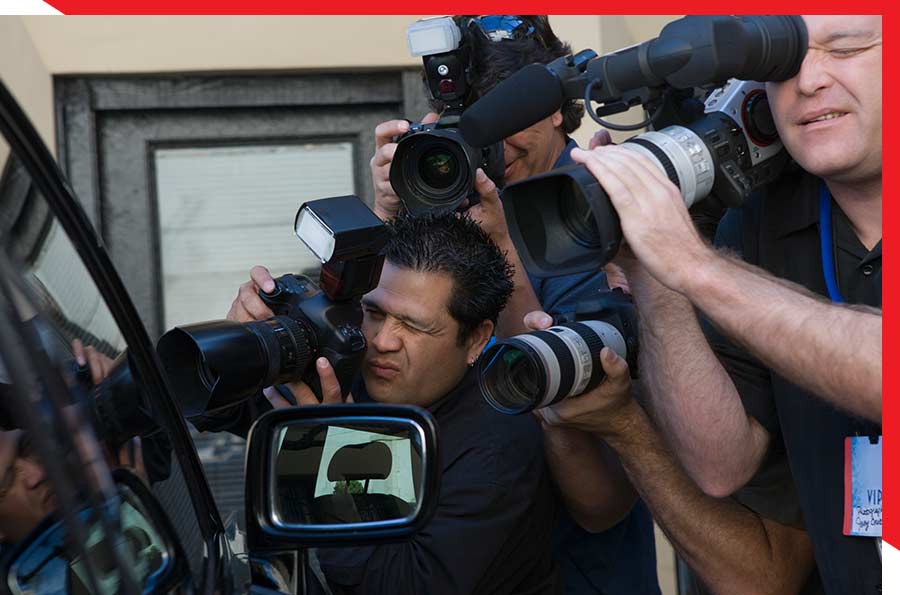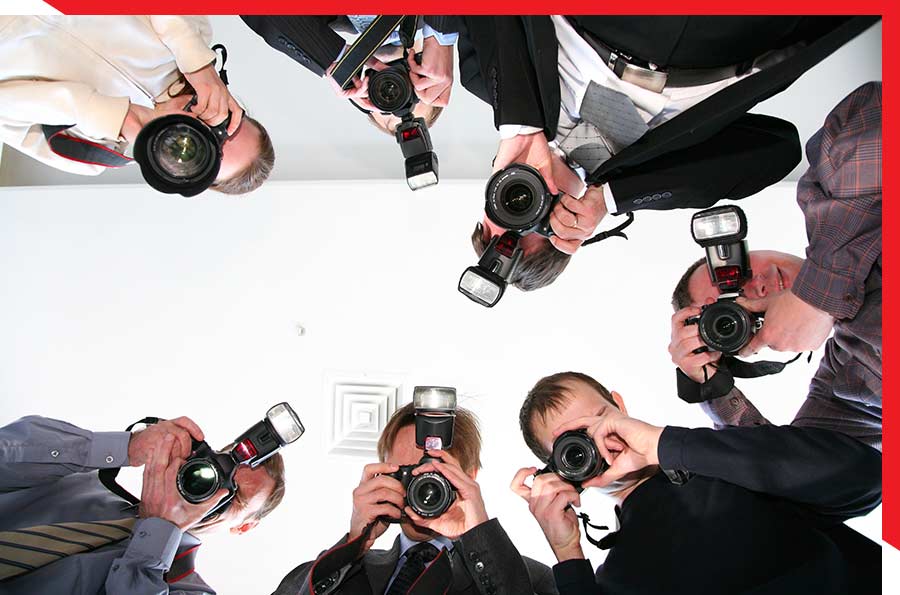Protecting the Rights of Paparazzi Photographers: What You Need to Know
As a paparazzi photographer, it is important to understand your legal rights and the protections afforded to you under copyright law. This includes knowing when and how to assert your copyrights against those who use your work without permission, as well as the potential damages that you can recover in such cases. Whether you are dealing with celebrities or other individuals who attempt to use your photographs without permission, it is important to understand your rights and legal options as a photographer.
With the right knowledge and resources, you can effectively protect your work and ensure that you are fairly compensated for your efforts.

Who are the Paparazzi?
The term “paparazzi” typically refers to professional photographers who specialize in capturing candid, unauthorized images of celebrities and other high-profile individuals. Paparazzi photographers often work in close proximity to their subjects, using long lenses and clever tactics to capture moments that others would not normally see. While these photographers can be controversial due to the nature of their work, they have a legal right to their photographs and the copyright that attaches to them.
While the public is often led to believe that these photographers “stalk” celebrities to photograph them, very often the photographer is “tipped off” by the celebrity or the celebrity’s staff, in order to gain publicity.
What Rights Do Paparazzi Photographers Have?
As paparazzi photographers, you have certain rights when it comes to protecting your work against unauthorized use. Under U.S. Copyright law, you have the exclusive right to reproduce your photographs, and you can take legal action against anyone who attempts to use these images without your permission. The photographers’ rights of enforcement include actions against celebrities and other individuals, as well as media outlets or publications that might seek to use your work for commercial purposes.
If someone has used one of your photographs without permission, you are entitled to recover damages from them. This can include monetary compensation, as well as injunctive relief to stop the unauthorized use of your work.

Copyright Attaches Automatically on Photographs by Paparazzi
Because photography is considered to be a creative expression, it is automatically protected under copyright law as soon as the image is captured. This means that you retain the exclusive right to your photographs from the moment they are created, and you can take action against anyone who uses them without your permission. Whether you are dealing with a celebrity or another individual, it is important to understand your rights as a paparazzi photographer and take steps to protect your work.
Photographers Do Have Copyright Protection, Even Without Filing a Copyright Registration
If My Images are Copyrighted Automatically, Why Should I Register My Copyrights?
While technically you do not need to file a copyright registration in order to obtain copyright protection for your photographs, there are several benefits of registering your works with the U.S. Copyright Office. These include:
Evidence of ownership: By filing a formal copyright registration with the U.S. Copyright Office, you can establish proof of ownership of your photographs, should you need to take legal action against an infringer.
Protections for additional uses: Registering a copyright also provides protections for derivative works and other unauthorized uses that may arise in the future.
Enhanced legal remedies: Copyright registration can also lead to enhanced legal remedies if you decide to pursue damages from an infringer.
Actual vs. Statutory Damages in a Copyright Lawsuit
When it comes to copyright infringement, there are two types of damages that can be recovered: actual and statutory. Actual damages are compensation for losses incurred as a direct result of the unauthorized use, such as lost profits or license fees. While actual damages provide some financial relief in these cases, they may not be substantial enough to properly compensate you for the infringement. They can also be more difficult to prove from an evidentiary standpoint.
In contrast, statutory damages are calculated based on the severity and impact of the infringement. These damages allow you to recover a higher amount in cases where actual damages cannot be determined or are difficult to prove.
When Do I Need to File a Copyright Registration to Protect My Rights?
In most cases, it is a good idea to register your copyright with the U.S. Copyright Office before taking legal action against an infringer. This provides you with stronger evidence of ownership, as well as eligibility for statutory damages in the event of a future infringement.
In order to secure statutory damages for copyright infringement for a published work, you must file your copyright registration within 3 months of your work being published. If you fail to register within this timeframe, you will only be eligible for actual damages, which can be a less substantial sum and more difficult to prove in court.
With respect to unpublished works, you need to file your copyright registration prior to the infringement to be able to recover statutory damages.
What Should I Do If Someone Has Used My Photographs in Violation of My Copyright?
If you believe that someone has used your photographs in violation of your copyright, it is important to take immediate action and consult with one of our experienced copyright attorneys. This will help ensure that all applicable legal remedies are pursued, including both actual and statutory damages where available. We may also be possible to recover other forms of compensation, such as attorneys’ fees and punitive damages, depending on the circumstances of your case.
Contact our firm today at 888-348-3090 or complete the form on this page to learn more about protecting your rights.


